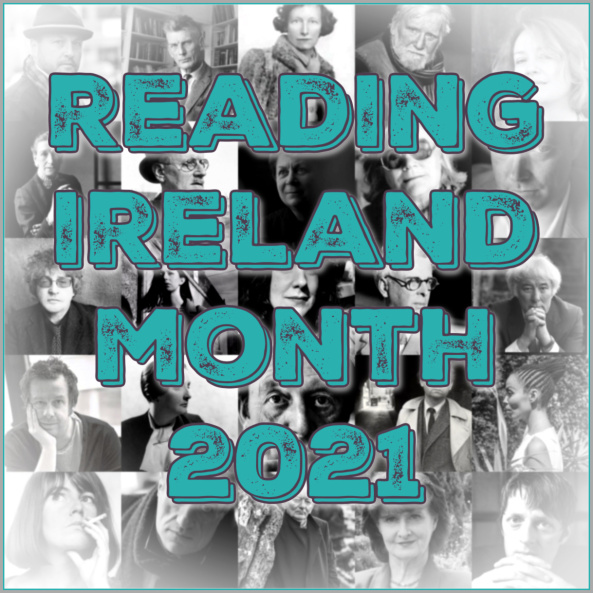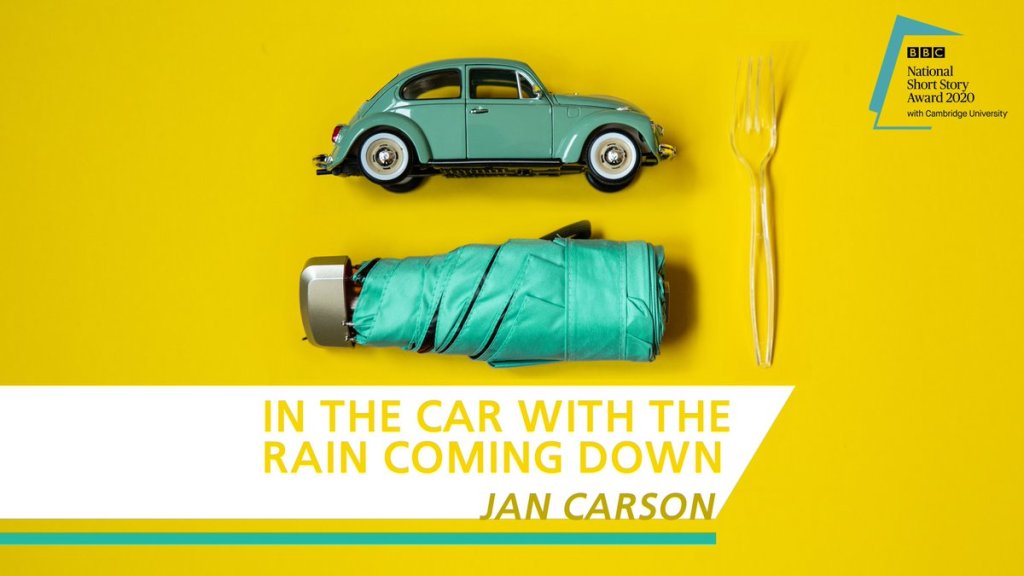Yesterday morning, when I settled down to write this post, I was still juggling ideas about content. As always, when faced with an opportunity to prevaricate, I opted to read. Checking other people’s posts, I decided, would help me decide.
I abandoned all as soon as I saw that Cathy, at 746 Books, had nominated March as Reading Ireland Month. This was it.
The challenge was announced in January. In joining at the last minute, I’m clinging to the coat-tails of those bloggers who have already signed up to this party – like an annoying little sister, perhaps.
To make that situation worse, I’m not planning to stick to the rules (do little sisters ever understand rules in the same way as their siblings?). Like any experienced gatecrasher, I’m cherry-picking the segments that suit me. Cathy’s nicely arranged schedule provides inspiration. .
1st – 7th March – Contemporary Irish Novels. If contemporary means read within a year or two of publication, then I’ll certainly need to side step this one. I can’t remember the last novel of any nationality that I read close to its date of publishing.
On the other hand, if I take ‘Contemporary‘ from the challenge for this week, and ‘Short Story‘ from the third week (15th – 21st March – Irish Short Story Collections), I can talk about Jan Carson’s, ‘In The Car With The Rain Coming Down’. It was a memorable high-point in my short-story-reading last year that I’m glad of an excuse to revisit.
Carson is from Northern Ireland. She’s written a novel, flash fiction and short stories. This one was broadcast as part of the shortlist for the BBC National Short Story Award last year, and I was hooked, from the first sentence.
There’s a stand-off in the front yard.
That is a line to envy. At first glance, its effortless.
If, however, we’re thinking about that standard writing advice of ‘setting your reader a question that must be answered’, it provides multiples: Who? Why? Where? What next? Somehow, it also sets a ‘wild-west’ flavour to the scene.
Carson doesn’t exactly explain in the next few sentences, she expands the questions:
No significant progress can be made until the men decide who’s driving. It’s the same every time we go anywhere together.
There are six cars in the yard. To say they’ve been parked would be giving the drivers too much credit. They look as if they’ve been dropped from a great height and have come to rest at outlandish angles, sniffing each other’s bumpers like a pack of frisky dogs. The men are debating which cars will be required today.
Part of what I like is our narrator’s vocabulary. Look at that second sentence. The word that jumps out to me is ‘significant‘. It’s as if the narrator is embedding doubts into the situation: here, perhaps, progress is always in question.
Then there are the distinctive similes. I’d never have thought of cars being ‘dropped’, or of relating them to frisky dogs. I feel a little smile beginning to form. I’m still not sure whether I’m entering a comedy, but the narrator is clearly able to see humour, so I’m ready, if that’s where we’re going.
Speaking of journeys, sometimes stories take place in a kind of geographical ‘anywhere’. They describe events that are universal, and could apply to any of us.
These cars are in Northern Ireland. Their goal is a local landmark, and the dynamics of the characters belong in their geographical location.
This does not mean that all of the situation is unique to the geography. But perhaps it says that these particular characters have formed and are reflecting the experience of growing up and living in their setting. The voice of the narrator, Victoria, is deliberately, though not heavily, accented. ‘They’ve ruled out Matty’s wee Nova.’ It’s in occasional turns of phrase.
Even before she says, ‘Sure‘, voice is part of the context of this story:
The Escort’s out too. It’s filthy with dog hair. William, my father-in-law, keeps it for his collies. He’s never once thought of cleaning it out. Sure, what would be the point?
‘What would be the point?’ is a telling question. It is, perhaps, at the heart of this story, where the tensions and loyalties of family life are explored.
In these travel-less days, perhaps one way to experience other cultures is to embed ourselves in their literature.
“Is it a Protestant thing? Clodagh asks, having your picnic in the car, because it’s not something my folks do.”
The things families do are explored with a surprising amount of depth in this journey that does not cover many road miles.



Wow! What a great opening line. As always, when I read such a brilliantly written line, I think, Why can´t come up with something like that! This short story has certainly caught my attention. Good luck with your reading Ireland month. There will be so much to choose from.
LikeLiked by 1 person
Thank you, Darlene. I do find challenges are very good for stretching my reading habits.
LikeLiked by 1 person
I’m smiling already, Cath! I hear their voices and their humour. It takes me right back to the time I spent working over there with my Belfast-based team. I’ve bookmarked the story to listen to later. Thanks for sharing this little gem 🙂
LikeLiked by 1 person
I’m glad to have been able to prompt the memory, Chris. Hope you enjoy the story.
LikeLiked by 1 person
I’m sure I shall. Started listening this morning, then work intervened…
LikeLiked by 1 person
I did enjoy it! So beautifully read as well. Laura Donnelly’s voice reminds me of someone I know.
LikeLiked by 1 person
I like the sense of immediacy in the passages you’ve chosen—as a reader I feel drawn into the scene, a bystander who, if not careful, may be forced to take evasive action.
LikeLiked by 1 person
Thank you for the complement, Chris. It’s such a challenge to suggest the flavour of the story without giving away key moments of interest.
LikeLiked by 1 person
Brilliant post Cath, I do love Jan’s writing. Thanks for this.
LikeLiked by 1 person
Thank you Cathy, for setting up the challenge. You’ve reminded me of several other writers I want to check out.
LikeLike
Am listening to the story (BBC Sounds) as I type. Brilliant, loving the power games! Thanks for sharing Cath. Blessings always, Deborah.
LikeLiked by 1 person
Excellent, Deborah, I’m so glad you’ve liked it. Thank you for the Blessings, and I send you mine in return.
LikeLiked by 1 person
Rubbing hands. Certainly looking forward to this blog on Cath.
LikeLiked by 1 person
😊 Thank you, Shey.
LikeLiked by 1 person
What are rules for, if not to be broken?
I like the part about the dropped cars too. Sounds – like you said – the start of something humorous.
LikeLiked by 1 person
My feelings exactly, Jina.
LikeLiked by 1 person
Thank you for such a close reading, I’m going to have to read it now that you’ve pin pointed things to look out for, and I’m looking forward to it!
LikeLiked by 1 person
Thank you, Jane. I hope you, too, enjoy it.
LikeLiked by 1 person
I bought Anna Burns’ novel, Milkman, the year it won The Man Booker Prize 2018 and have yet to read it. Perhaps, the time is now 🙂
LikeLiked by 1 person
Funny, I don’t have the Burns novel yet, but joining this challenge has reminded me that it was high on my wish-list for last year, so I’ve just transfered it onto the list I’ve started this year. Perhaps now is the time for me, too.
LikeLiked by 1 person
All right, you brandish these little quotes with such fervor, Cath, that I’m instantly sold! Lemme check my library… 😉
LikeLiked by 1 person
If the library fails, there’s always the BBC recording, on my link, if it’s this story you’re looking for. 😃
LikeLiked by 1 person
That’s even better! Many thanks for the link, I’ll start listening right away 😀
LikeLiked by 1 person
Nicely descriptive language there. Also, “filthy with dog hair” pretty much describes the rear seat of my car ― it hasn’t gone much of anywhere in the past year, but when it HAS gone places, there’s typically an animal back there on his or her way to the vet …
LikeLiked by 1 person
Yes, hope Chaplin is feeling much better now.
The back seat of my car’s in a similar condition… perhaps that’s partly what drew me to the story!
LikeLike
Thanks, Cath. I’m going to search this out and give it a read.
LikeLiked by 1 person
Hope you enjoy it, Lynda.
Lovely to hear from you again. All safe and well, I hope… Busy?
LikeLike
Pingback: Reading Ireland Month: Week 1 round-up and giveaway!
I am now interested to read this short story by Jan CARson… and your post assures me that it’ll be a joyous, intense ride.
Fingers crossed! Thanks Cath for picking this story for your March post. Lovely!
Enjoy #readingirelandmonth21 😀
(I too take my own sweet time to finish a novel, publishing dates don’t bother me at all.)
LikeLiked by 1 person
I hope you do enjoy Jan Carson’s story, Jagriti. Not everyone shares my taste in literature! 😉
The way I see it, we tardy novel readers will never be short of recommended reads.
LikeLiked by 1 person
Hee hee! I agree with you Cath!
(It is not a recommendation, just a request, whenever possible do read this – https://www.chimingstories.in/2021/02/arthdal-chronicles-unfolding-of-the-epic-saga.html
I have tried to analyse Arthdal Chronicles, one of my favourite shows – a Fantasy Korean Drama).
LikeLiked by 1 person
Thank you! 🙂
LikeLiked by 1 person
This writer has energy but also restraint, an envious combination! I seem to have the opposite problem – lassitude and a tendency towards purple prose!
LikeLiked by 1 person
Possibly an overly-loud inner critic, too? 🙂
LikeLike
Er, yes, alas! 🙂
LikeLiked by 1 person
A great first line that totally sucked me in, Cath. I love stories where the voices are so distinct and rich with a sense of place. A fun post. 🙂
LikeLiked by 1 person
Thank you, Diana. 😊
LikeLiked by 1 person
CATH! I hope you’re well. Uffdah, I’m happy for 2021 to be on its way, and I’m hoping 2022 will contain beautiful words for us both to explore. xxxxx
LikeLiked by 1 person
Touching wood, and crossing fingers as I say, yes, thank you, I seem to be well, so far. Though I gather most of this country are picking up virus bugs at a phenomenal rate. Hope your household is healthy, too. Yes, I’ve hopes for 2022, too. xxxx
LikeLiked by 1 person
Yes, the virus will always be hovering, but we just need to do our best to keep our health and help others. We had our fun with covid in November, but our symptoms were all mild and left us by the time the month is over. I was also helping my daughter’s school review their curriculum throughout 2021, so I’m hoping the completion of that project means my writing time has returned for 2022. Let’s both make sure we share something creative this year!
LikeLiked by 1 person
Now there’s a good resolution. I don’t usually make them, but here goes…
LikeLiked by 1 person
Agreed! We will make this work somehow. x
LikeLiked by 1 person